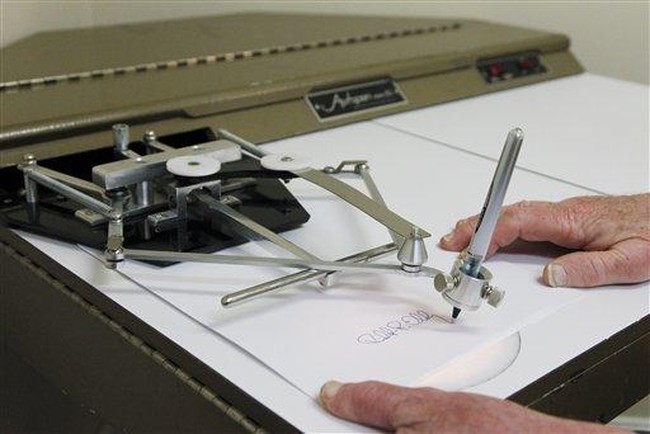
I’m not sure who thought it was a good idea for Joe Biden to do an interview with the New York Times about the autopen scandal, but it happened, and boy, was it a mistake. While defending his controversial use of an autopen machine for mass clemency decisions, Biden boldly claimed he “made every decision” on his own.
We cannot understate the scale of Biden’s clemency actions. In what the White House trumpeted as “the largest single-day act of clemency by a U.S. president,” Biden granted pardons and commutations to more than 1,500 individuals during his final weeks in office. This wasn’t some routine administrative task; this was an unprecedented exercise of presidential power.
But here’s where Biden’s characterization falls apart completely. Buried in the very same report is evidence that completely undermines his claim — evidence that should alarm every American who values transparency and accountability in government. The Times report explicitly states that Biden “did not individually approve each name for the categorical pardons that applied to large numbers of people.”
Instead, the report reveals that he merely “signed off on the standards he wanted to be used to determine which convicts would qualify for a reduction in sentence.”
Even after Mr. Biden made that decision, one former aide said, the Bureau of Prisons kept providing additional information about specific inmates, resulting in small changes to the list. Rather than ask Mr. Biden to keep signing revised versions, his staff waited and then ran the final version through the autopen, which they saw as a routine procedure, the aide said.
Biden wants Americans to believe that he personally reviewed and decided the fate of over 1,500 individuals, yet the evidence shows that he simply approved broad criteria and let his staff handle the actual decisions. This isn’t presidential leadership; it’s presidential abdication wrapped in misleading rhetoric.
Recommended: Why Is the Minnesota Shooter Saying Tim Walz Will Cover Up His Real Motive?
The autopen even signed Biden’s pardons of the J6 Committee members at the direction of an aide.
The emails show that an aide to Mr. Siskel sent a draft summary of Mr. Biden’s decisions at that meeting to an assistant to Mr. Zients, copying Mr. Siskel, at 10:03 p.m. The assistant forwarded it to Mr. Reed and Mr. Zients, asking for their approval, and then sent a final version to Ms. Feldman — copying many meeting participants and aides — at 10:28 p.m.
Three minutes later, Mr. Zients hit “reply all” and wrote, “I approve the use of the autopen for the execution of all of the following pardons.”
Instead of having Biden physically sign updated versions of official documents, his staff routinely relied on the machine to apply his signature to final drafts, a practice that raises serious questions about who was actually exercising executive power during his presidency. Given the growing concerns about Biden’s cognitive state, the implications are far-reaching. While The New York Times zeroed in on the clemency decisions, the real scandal goes well beyond that. It casts doubt on the legitimacy of countless actions the administration took under Biden’s name, including major policy moves and executive orders.
The implications are staggering. How many critical decisions did aides make without proper presidential oversight? How many policies did the administration implement under a signature that Biden never actually provided? These questions strike at the heart of constitutional governance and the principle that the president — not his staff — exercises executive authority.
Last month, former Biden advisor Neera Tanden admitted under oath that she — not Biden — had control of the presidential autopen from October 2021 to May 2023. This means that an unelected White House aide was signing executive orders and pardons on Biden’s behalf while falsely leading the public to believe the president was personally authorizing them. Tanden’s testimony before the House Oversight Committee confirmed that for nearly two years, Biden’s role may have been largely ceremonial, while staffers effectively rubber-stamped key decisions behind the scenes.
The Biden administration’s autopen practices represent more than mere procedural shortcuts; they constitute a fundamental breach of trust with the American people. When a president claims to have made every decision personally while simultaneously admitting that he didn’t individually review each case, that’s not just misleading; it’s a deliberate attempt to obscure the reality of how power was exercised in his administration.
The evidence contradicting Biden’s statements isn’t subtle or ambiguous. It’s right there in black and white. Biden cannot claim personal responsibility for decisions he admittedly didn’t make individually. This contradiction exposes a pattern of deception that demands serious investigation and accountability.
Do the revelations about Biden’s autopen abuses shock you? You’re not alone. PJ Media is committed to shining a light on government overreach and exposing the facts the mainstream media hides. Become a PJ Media VIP now — use promo code FIGHT for 60% off and unlock members-only analysis, an ad-free experience, and the chance to make your voice heard in the comments. Don’t let this moment pass — support real journalism that defends your liberty.










